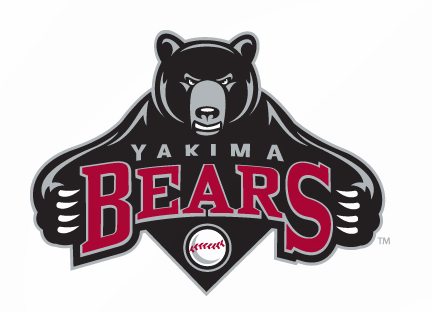The general manager of the Yakima Bears confirmed last week that the Bears will remain in Yakima for the 2012 season.
K.L. Wombacher, who said in late August that he didn’t think there would be any way to build a stadium in Vancouver and have it ready for the 2012 season, issued a press release Sept. 1 that confirmed the Bears will play next year at Yakima County Stadium.
“Although we had hoped to play in a permanent, suitable facility in 2012,” he said in the press release, “we are pleased to announce that Yakima County Stadium will be the home of the Bears for at least one more season.”
The Bears’ stadium does not meet league standards, one of several reasons cited in May when owners announced they wanted to bring the Class A minor league baseball team to Vancouver.
The biggest factor, however, was to take advantage of the vacancy created in the Portland-Vancouver market when the Beavers left for Arizona.
The Bears have exclusive negotiating rights in what’s currently the largest metropolitan area without any level of minor league baseball.
Those rights expire Sept. 23, but may be extended if the Bears, an affiliate of the Arizona Diamondbacks, make significant progress in negotiating to move here.
Under a current proposal, the public would pay 40 percent of a $22.7 million stadium at Clark College through an admissions tax. The team would pay 30 percent, as well as arrange for financing and pay ongoing maintenance and operations.
The team would play 38 home games a year at the stadium, which would be built east of Interstate 5 and west of Fort Vancouver Way at the site of Clark College’s existing field.
Clark College would lease the land for free, and provide parking, in exchange for being able to use the stadium.
The team’s initial offer was a 70-30 public-private split, as the public would be able to use the stadium.
At a financing work session in late August, Clark County commissioners rejected that proposal. Commissioner Steve Stuart proposed a 40-30-30 split, with the remaining 30 percent to come from private investors.
The three Clark County commissioners will have a public hearing on a 5 percent admissions tax 10 a.m. Sept. 20 at the Public Service Center, 1300 Franklin St.
The tax would add 5 percent to the cost of tickets at movies (at major chain theaters, not single-screen theaters), the Clark County Fair and concerts at the Sleep Country Amphitheater.
Under Stuart’s proposal, the county’s fair fund, the city of Vancouver and the city of Battle Ground (because it has a movie theater complex) would receive the tax revenues for the first five years.
Over the next 20 years, $800,000 a year in admissions tax revenues would be dedicated to paying off stadium debt. If revenues were short, the team would have to make up the difference.
Meeting resistance
While the owners of the Bears initially hoped they would open the 2012 season at a new stadium at Clark College, the proposal to bring minor league baseball to Vancouver has been met with resistance.
Commissioner Tom Mielke does not support imposing an admissions tax without a public vote; if Stuart gets a second vote it will have to come from Commissioner Marc Boldt.
If Stuart and Boldt approve the admissions tax, it would not go into effect until after Jan. 1, Stuart said.
That would give the county time to develop detailed agreements with its partners.
A key partner will be the Vancouver City Council. The council would have to agree that, after five years, admissions tax revenues will be dedicated to paying off stadium debt. Also, the council has to agree that, for the life of the stadium debt, if the city enacts its own admissions tax, overriding the county’s admissions tax, the city must pay off the stadium debt from another source.
Vancouver Mayor Tim Leavitt said last week that the city council has not discussed Stuart’s proposal. He said he expects the council will have a workshop on the subject.
Community boosters, including the Columbia River Economic Development Council, Identity Clark County and the Downtown Vancouver Association, have cheered the proposal.
A study commissioned by the CREDC and done by Paul Dennis and Eric Hovee found the project would generate $206.5 million over 20 years. That figure includes $34.5 million in construction, $4.6 million annually from professional baseball and $4 million annually from having the stadium used for regional and national tournaments.
After capital debt was paid, the stadium would be publicly owned, with the most likely owner being Clark College.
Stephanie Rice: http://www.facebook.com/reporterrice; http://www.twitter.com/col_clarkgov; stephanie.rice@columbian.com.



